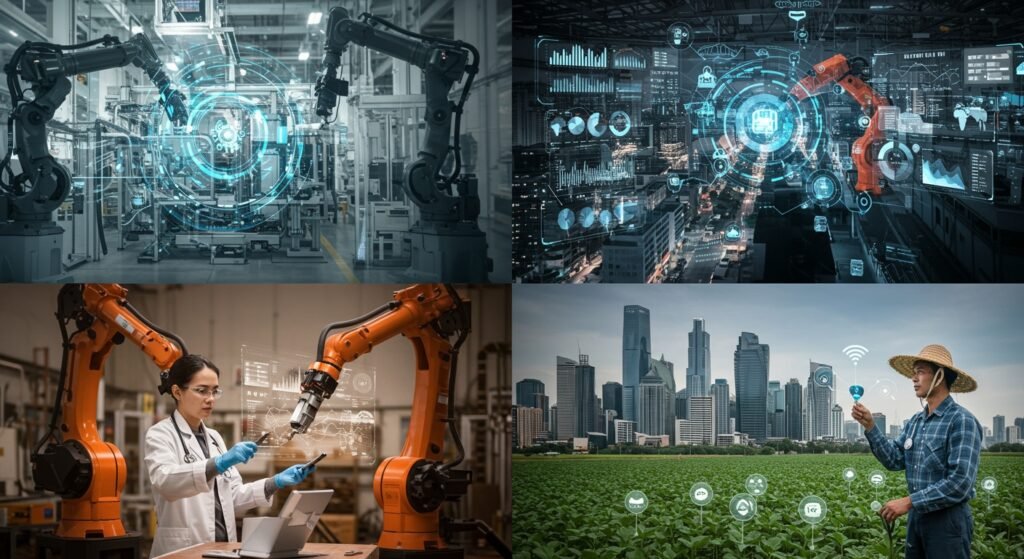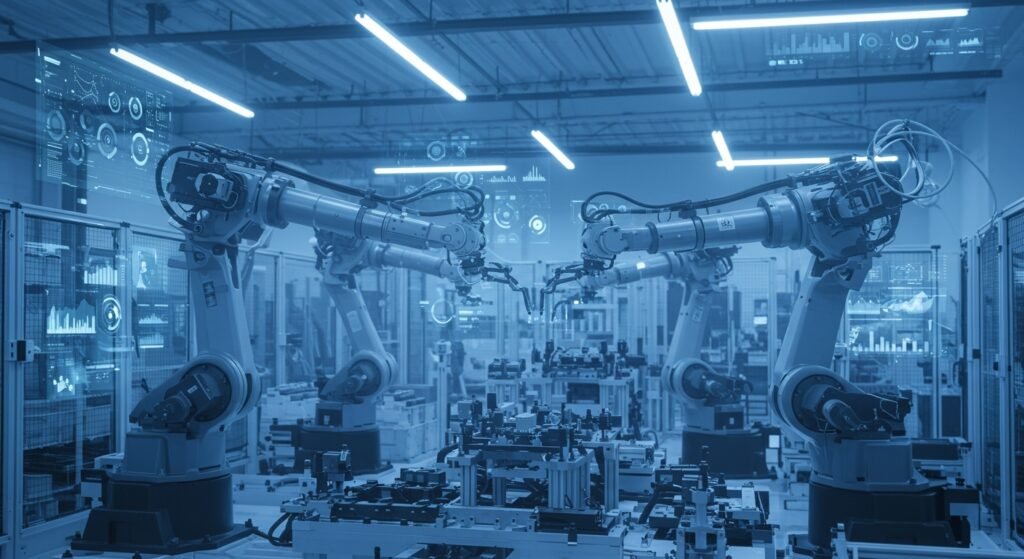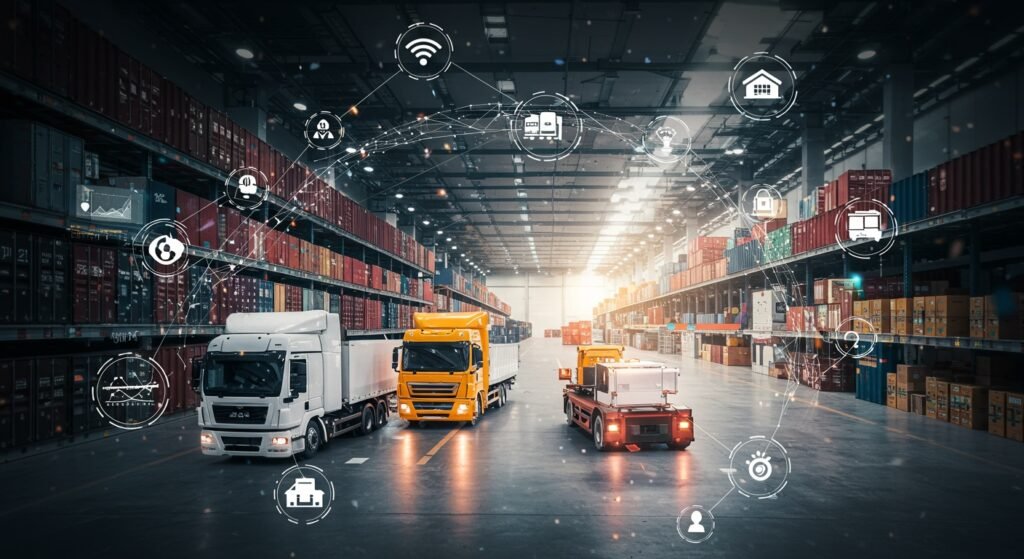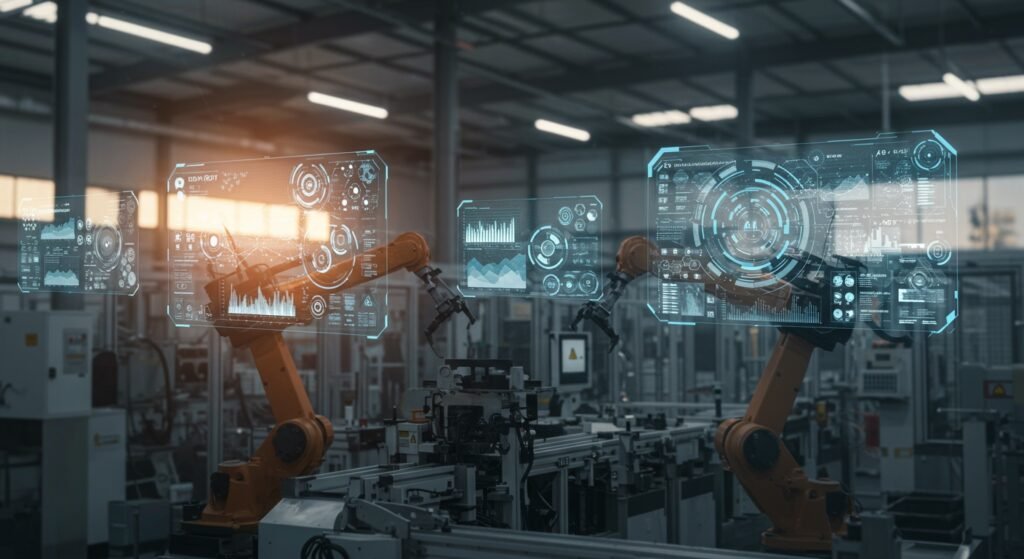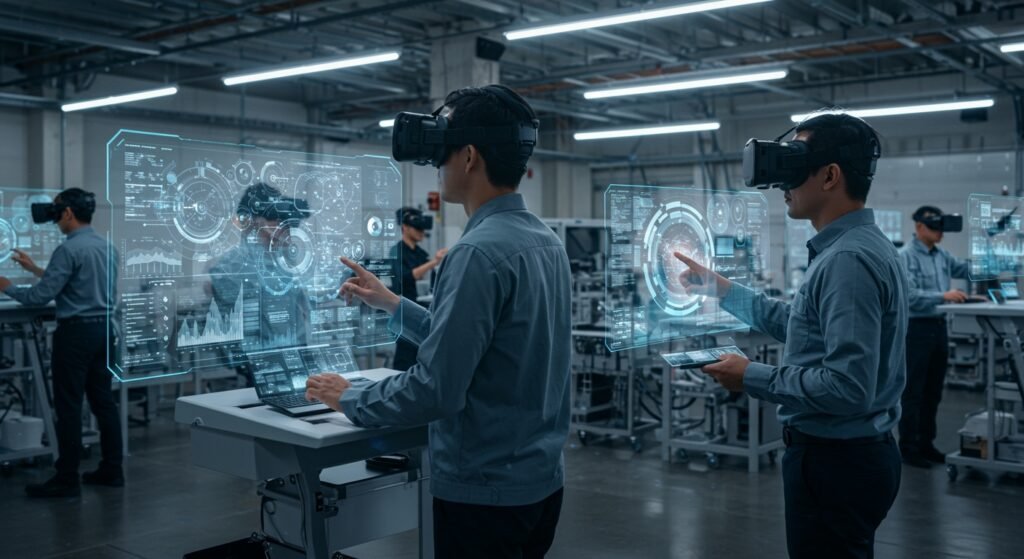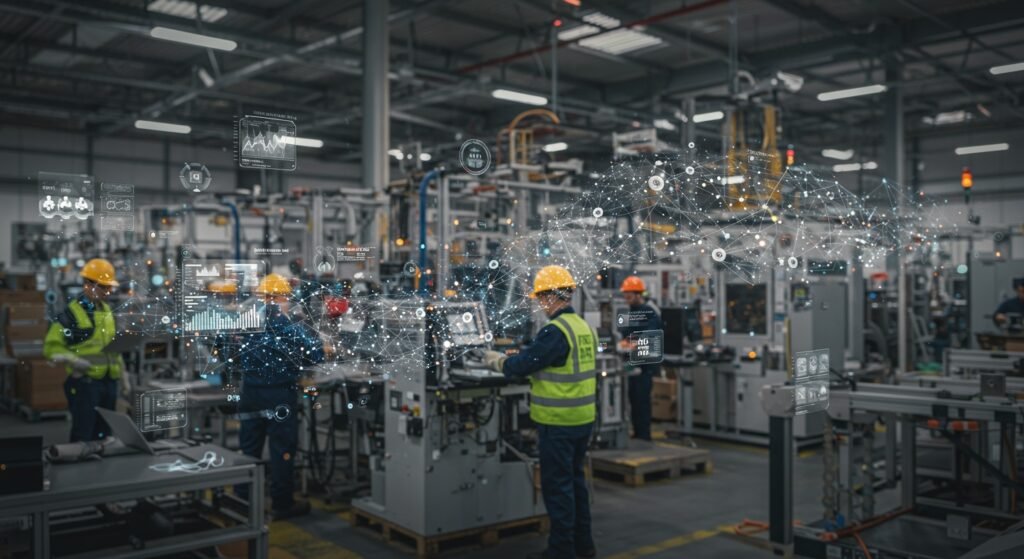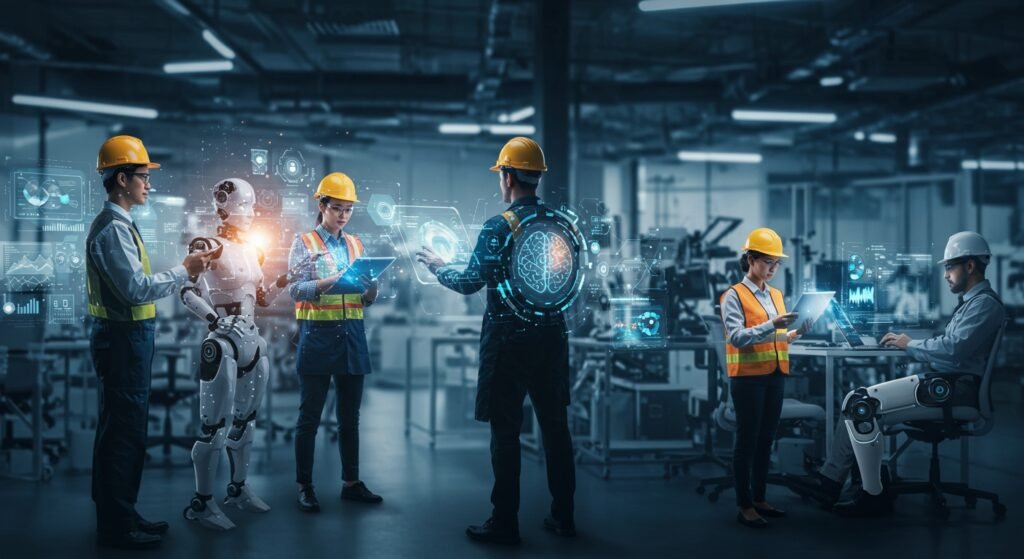7 Groundbreaking Applications of Industry 4.0: Unlocking New Potential
Applications of the Fourth Industrial Revolution: Transforming Our World The Fourth Industrial Revolution (4IR), often referred to as Industry 4.0, is fundamentally changing the way we live, work, and interact. Characterized by a fusion of technologies that blur the lines between the physical, digital, and biological spheres, its applications are vast and varied, impacting every […]
7 Groundbreaking Applications of Industry 4.0: Unlocking New Potential Read More »
